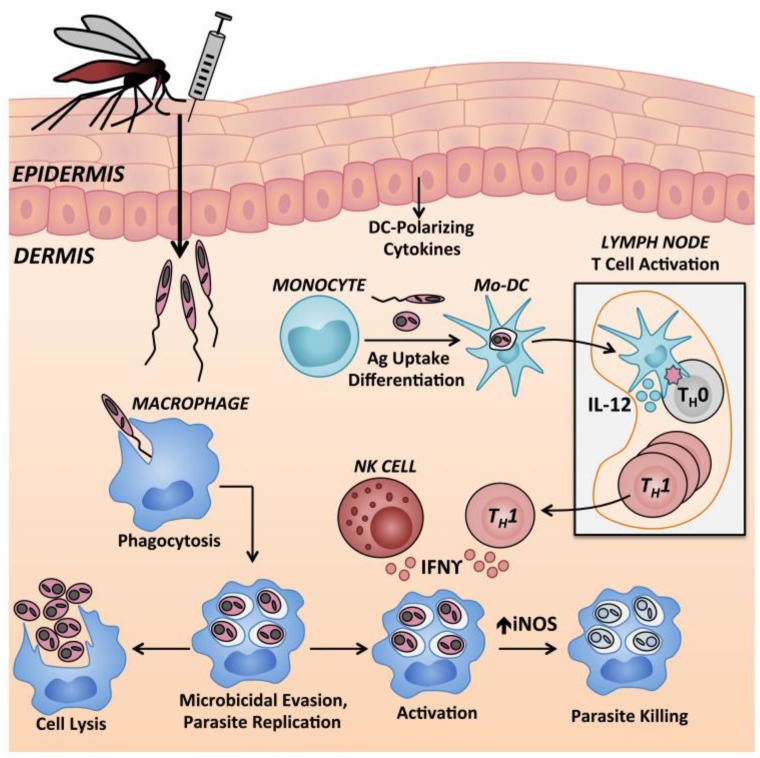Figure 4.
Monocytic cells in control of Leishmania replication in murine skin. Epidermal cytokines can modulate this process. Monocyte derived dendritic cells (Mo-DCs) transport antigen to draining lymph nodes for presentation to naïve CD4+ T cells and resultant TH1 cells traffic back to the site of infection where they secrete IFNγ. Recruited inflammatory monocytes are the primary host cell allowing intracellular survival and replication of Leishmania spp. Monocytes recruited to the site of intradermal Leishmania inoculation can differentiate locally into dendritic cells or macrophages. Once phagocytosed by macrophages, Leishmania use a variety of virulence mechanisms to suppress the host cell microbicidal response and replicate intracellularly. Infected macrophages can either facilitate intracellular survival and/or replication, or if exposed to activating signals such as IFNγ from TH1-type cells or NK cells, can upregulate iNOS. The combination of reactive oxygen and reactive nitrogen species can contribute to killing of intracellular parasites. Mo-DC: Monocyte derived dendritic cell; NK cell: Natural killer cell; IFNγ: Interferon γ; IL-12: Interleukin-12; iNOS: Inducible nitric oxide synthase; TH1: T helper 1 cell, TH0: Naïve CD4+ T cell.

